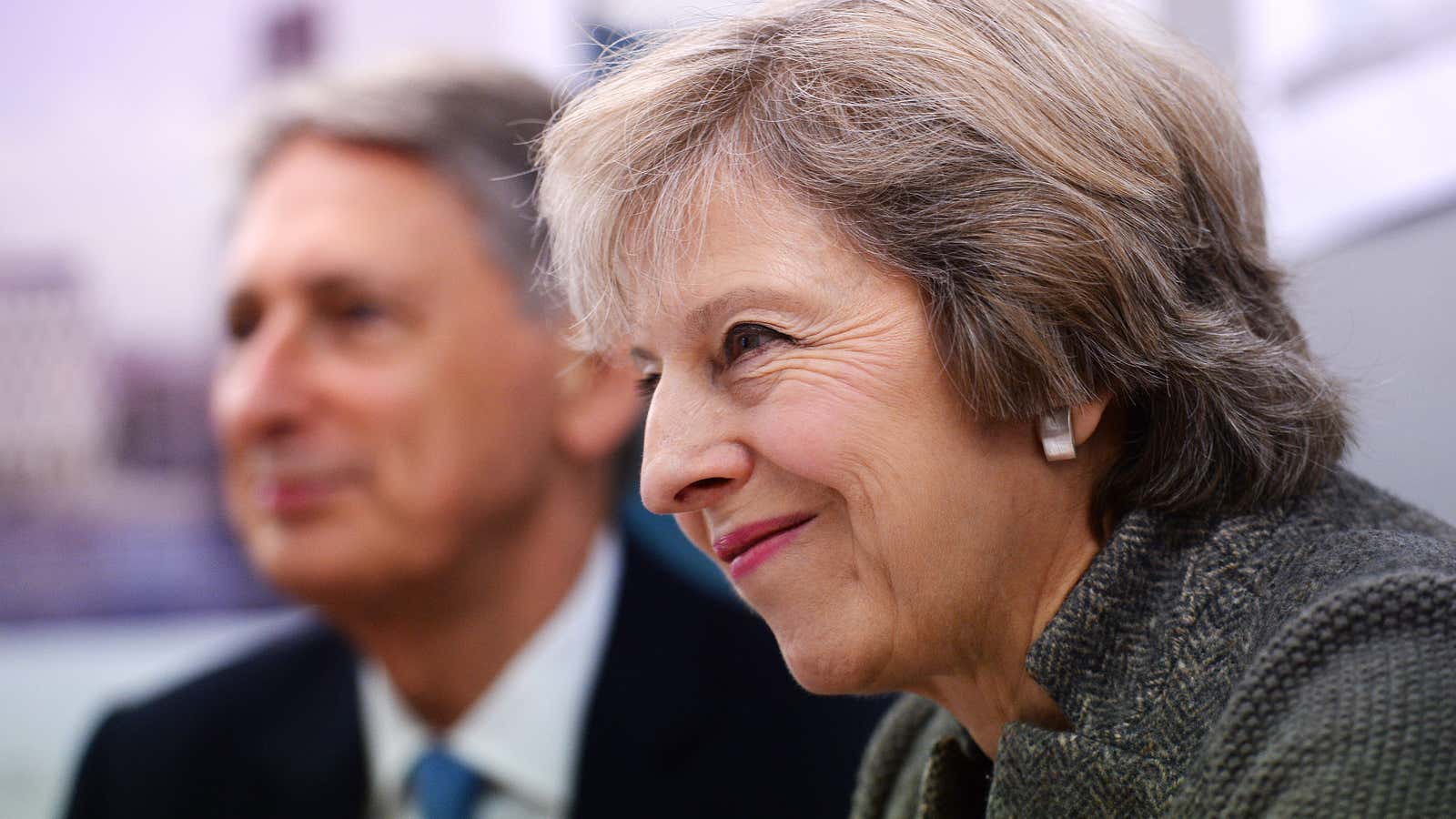The slogan of pro-Brexit campaigners in the UK was “Take Back Control.” But now that Britain has voted to leave the EU, it will become even more dependent on foreigners. Over the next five years, PricewaterhouseCoopers believes that the British government may have to borrow £100 billion ($124 billion) more than projected by the Office for Budget Responsibility (OBR), the official fiscal watchdog.
Before the referendum, Mark Carney, the governor of the Bank of England, said Brexit would make the UK reliant on the “kindness of strangers” to finance its large current account deficit (a broad measure of trade and investment flows). About a third of the UK’s government debt is held by overseas investors; it needs these strangers to maintain their appetite for bonds if it’s about to add billions more to its debt pile.
PwC thinks more aggressive borrowing is necessary to make up for lower revenues stemming from a slowdown in economic growth—specifically, “the drag on investment from increased political and economic uncertainty following the ‘Brexit’ vote.” GDP growth will slow from 2% this year to 1.2% in 2017, PwC forecasts.
If true, the boost in borrowing will come at an inconvenient time—interest rates have been rising due of a global selloff in the bond market stoked by inflation fears. The yield on 10-year British government bonds has risen to around 1.40%, from 0.5% at the beginning of July. At the same time, the UK’s creditworthiness is under threat. Standard & Poor’s said last week that it could cut the UK’s credit rating again, after dropping it by two notches (to AA from AAA) after June’s referendum.
